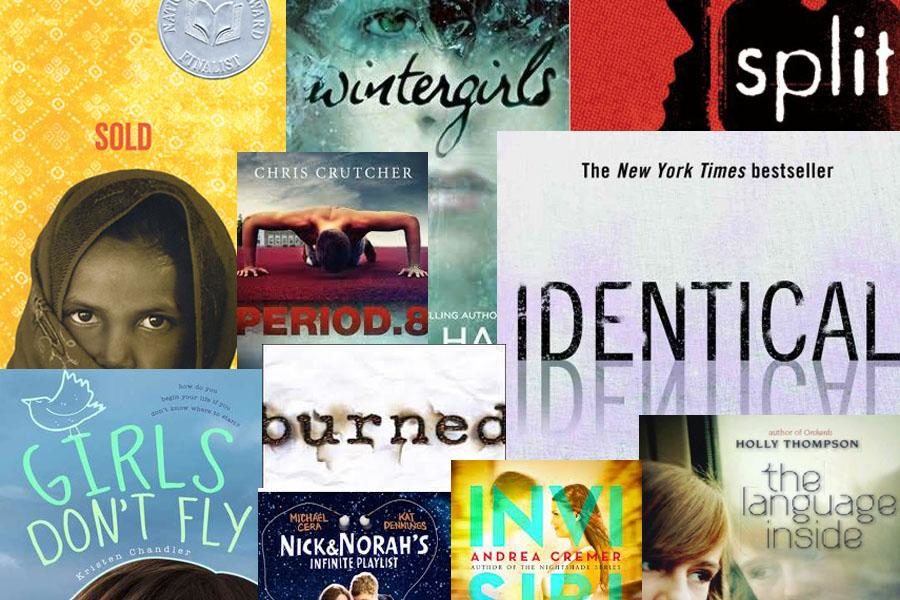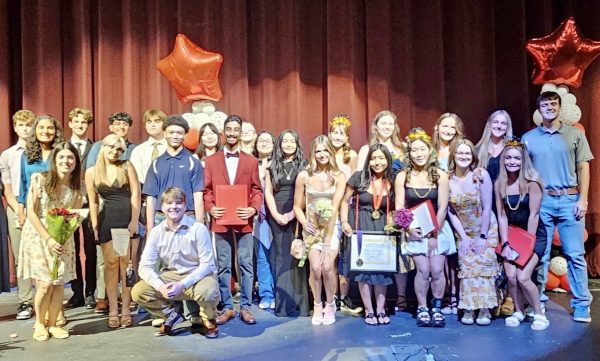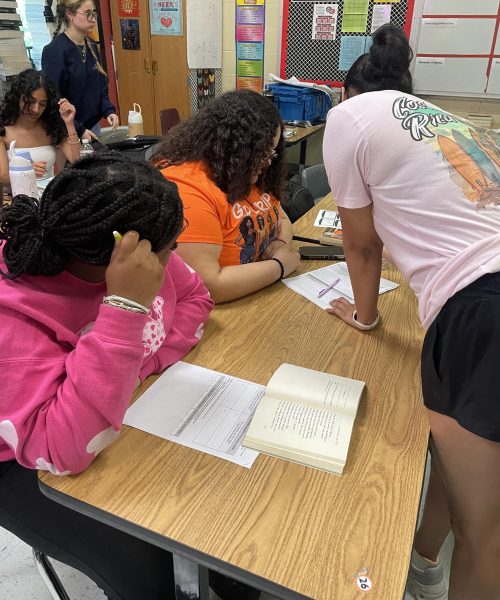Behind the Covers
Young Adult Literature is under attack…again.
Upon walking past a book display in any high school library, one might see several books with cover art containing scantily clad couples in evocative poses, suggesting more of what’s to come inside. There is a general agreement that the amount of sexual situations and content broadly labeled “inappropriate” being published in young adult novels is steadily rising.
These books can be considered to be a part of the young adult genre, or a new genre called “new adult.” New adult fiction is generally marketed to ages 18 – 25 and has even been described as “erotic fiction.” New adult are very similar to young adult fiction, which is marketed to ages 12 – 18.
Twilight is a YA novel that has recently been put under speculation. In an interview, popular author Stephen King slammed Twilight, calling it “tweenager porn.” Some other books under speculation are Speak by Laurie Halse Anderson and Twenty Boy Summer by Sarah Ockler. Books like these have been challenged by parents, who are wondering how much adult content their children should be exposed to.
“It’s reality,” said junior Shelby Shanks. “It happens everywhere and it’s your choice if you want to read it or not. It kind of depends on if you are mature enough to read it. The parents want their kids to not be involved in that kind of stuff so they don’t want their kid to be reading about that kind of stuff.”
From a business standpoint, the individual is not considered; rather, it’s the entire adolescent population. According to Publisher’s Weekly, the total sales in the young adult segment rose 13 percent
in 2012. The Chicago Tribune reported that YA books sold by publishing company Harper Collins made up 25 percent of the company’s revenues. From a business standpoint, the companies should respond to the demand for mature themes in order to reap the maximum benefit from the market, but from a moral standpoint, should adolescents be allowed to read those books?
An example of moral argumentation over YA literature is in Laurel Nokomis Middle School in Sarasota, Florida. Speak is a required reading for eighth grade students, which covers topics such as promiscuity, gang rape, and child suicide. The questionable topics caused parents to challenge the book’s place in the English curriculum. The curriculum council deemed it appropriate, but added an alternate book for students to select if they wished. They felt that students exposed to the material in a guiding classroom setting would encourage them to think about choices they might have to make in high school when socializing with older students.
Librarian Mrs. Summer Perry agreed with the curriculum council. “The intent of young adult literature is to expose young adults to problems they will encounter in their life,” said Mrs. Perry.
Mrs. Karen Higdon, another school librarian, also agreed with Mrs. Perry. She believes that high school students should be able to read about things they experience in their lives.
“Some high school kids today are more mature than kids used to be 25 or 30 ago, as far as what they’ve experienced, and what their friends have experienced,” said Mrs. Higdon. “I think kids read [books] to relate to them, not to get ideas.”
Although some adults like Mrs. Perry and Mrs. Higdon believe that kids should be able to read what they want, others think that YA fiction is mislabeled, and that it is actually more suitable for adults to be reading instead of young adolescents. This could be a publishing company marketing scheme, designed to sell books to the most zealous demographic with the most money to be spent on books: the young adults. Mrs. Perry does not think that money is the whole story, though.
She said that she believes YA authors’ involvement in social campaigns, such as fighting the LRA in Uganda and fighting human trafficking, should that it’s about more than just financial gain. A portion of the profits is sometimes donated to organizations that help raise awareness about the issues that the authors write about.
YA fiction can be beneficial on an individual level, with a reader making a personal connection, or on a global level, spreading awareness about global issues. Reading for pleasure is an important part of expanding the mind. Yet, students need teachers to guide them to the right answers and to keep them on track. In the same way, YA literature should be approached with caution, but also an open mind. Conversations between parents and their children about topics such as eating disorders and teen violence, and make public awareness can help society make more progress in dealing with these issues.




























